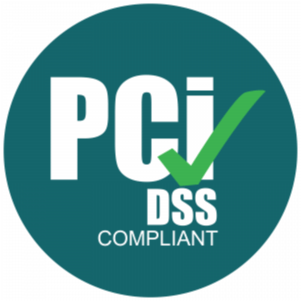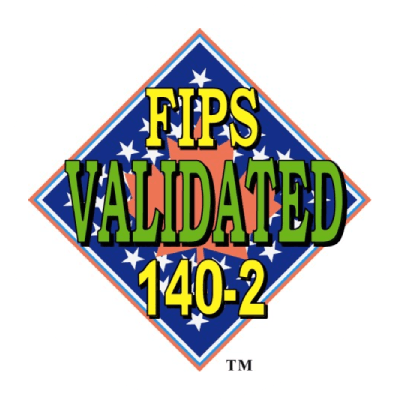Posted by Anne-Marie Avalon
July 5, 2024
Fintech firms are caught between balancing regulatory compliance constraints with innovating at breakneck speed.
Those who rise to the occasion can reap the rewards of a market expected to reach $324 billion by 2026. But, to thrive in this fiercely competitive market, fintech companies must quickly meet consumer demands for control, transparency, and exceptional experiences while still ensuring strong security measures and strict regulatory compliance. Read on to find out how to master fintech compliance and speed with Akeyless Vault.
Fintech companies face several key challenges in the current market
The growing pains of speed vs. compliance
Many fintech companies, eager to push out new products rapidly, have embraced DevOps workflows that favor speed and flexibility over compliance requirements. Yet, this prioritization can lead to many problems, such as software vulnerabilities, data breaches, and other compliance issues that can harm the company and its customers.
Regulators are ramping up their efforts to hold fintech companies accountable
As regulatory agencies tighten their grip, the financial sector is feeling the heat. In 2022, the average cost of data breaches in the U.S. financial services industry reached $9.4 million, while the global figure stood at $4.35 million, per industry data. Concurrently, the penalties for non-compliance continue to escalate.
One high-profile case involved Capital One, which was fined $80 million by the OCC and settled a $190 million class-action lawsuit following a major data breach caused by an employee.
Lack of compliance is a leading cause of fintech failures
Staying compliant has become an essential aspect of the new standard for fintech companies, and for a good reason. FinTech Magazine has reported that 75% of fintech companies backed by VC capital fail, with compliance issues ranking second on the list of reasons for failure.
Fintech startups find themselves tethered to two distinct yet equally demanding sectors. They must straddle the heavily regulated financial industry and the fast-paced tech industry. This dual mandate makes compliance issues more complex and onerous for fintech than for “classic” startups. Prioritizing regulatory compliance is critical for fintech companies to avoid serious consequences. However, it can make or break companies today if they do not master the balance of compliance and speed.
Fintech companies reliant on outdated tech face a significant compliance risk
The Financial Conduct Authority (FCA) reveals a startling 92% of the industry is still dependent on legacy technology, leading to sluggish and error-prone change management processes. Consequently, this reliance on outdated infrastructure correlates with more incidents following deployment changes and a higher proportion of emergency changes resulting in an incident.
Legacy and on-prem technology is the third most common characteristic in high-risk projects. These bottlenecks highlight the growing need for fintech firms to invest in modern, agile technology to keep up with regulatory requirements and minimize non-compliance risks.
With so much at stake, why isn’t fintech evolving their DevOps infrastructure towards more compliance and security?
With so much on the line, one might wonder why fintech companies aren’t rapidly advancing their DevOps infrastructure. The primary reason is the complex IT systems that many fintech firms possess, often resulting from mergers and acquisitions. These complexities lead to siloed legacy systems that can be challenging to integrate.
Furthermore, fintech companies must navigate a highly regulated landscape, making it difficult to implement new technology that adheres to compliance standards. Finally, greater awareness of emerging technologies that streamline both compliance and DevOps processes is necessary. However, staying informed about emerging technologies that enhance compliance and DevOps processes is a challenging task for fintech organizations due to rapidly evolving tech.
Secrets Management to Fintech’s Rescue
In today’s compliance and security landscape, managing secrets is essential. Secrets are the credentials companies use to authenticate privileged users who need to access critical internal data or sensitive applications and services. Implementing secrets management involves employing policies, processes, and digital tools to protect confidential data by granting access solely to authorized and authenticated users.
By utilizing secrets management, fintech companies can effectively manage and secure sensitive information, meeting regulatory requirements and reducing risks associated with outdated technologies and intricate IT systems. Secrets management plays a vital role in maintaining compliance and security in our modern world.
The Value of SaaS in Tackling FinTech Compliance and Security
SaaS-based secrets management solutions in particular allow fintech businesses to take advantage of cloud infrastructure, offering scalability, adaptability, and more straightforward integration with current systems, especially, when navigating inherited complex hybrid, on-prem and legacy environments. This helps decrease dependency on legacy technology and simplifies compliance tasks.
Achieving Fintech Compliance & Speed with the Akeyless SaaS Vault Platform
The Akeyless Vaultless® Platform is a SaaS-based secrets management solution that works the way DevOps does, emerging as the premier choice for fintech companies. This comprehensive, secure, and easily integrated platform supplies fintech organizations with the tools they need to streamline their security and compliance procedures, promoting growth and innovation in a strictly regulated environment. Akeyless combines its SaaS approach with SOC 2 Type 2 and FIPS 140-2 accreditation, making it uniquely equipped to support the specific needs of the fintech industry.
Achieve Fintech Compliance & Speed. Book a custom tour of the product today!













